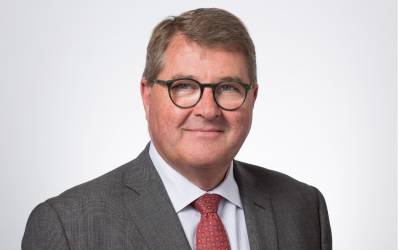Written by Professor Alan Thompson, Dean, Faculty of Brain Sciences and Pro Vice Provost (London), UCL
27 April 2020, issue 2

In March, UCL launched a study led by Dr Daisy Fancourt (Associate Professor of Epidemiology, UCL Epidemiology & Health Care), specifically looking at adults wellbeing and mental health in relation to Covid-19. The study currently has over 74,000 participants and reports on factors such as finance, food, catching Covid-19 or becoming seriously ill from it, loneliness and unemployment amongst others. The study has already reported that stress related to Covid-19 has steadily fallen since lockdown begun, along with general levels of anxiety. Further analysis of the findings will be crucial in our learning and understanding of the psychological and social impact of Covid-19 on individuals. The study can be found here.
As always, our expert academics at UCL have been speaking about Covid-19 and its impact in the media. Most recently, Professor Tali Sharot (UCL Psychology & Language Sciences) discussed the potential impact on happiness when individuals feel as though they have nothing to look forward to. Given the multiple cancellation of events, gatherings and family celebrations, these discussions are imperative to our future learning of individual levels of happiness. Additionally, the importance of social interactions have been raised in research led by Professor Carey Jewitt (UCL Institute of Education), in particular the value of touch and the removal of physical contact. In these times, whilst we may feel connected to our colleagues, friends and family through video calling and the internet, the importance of physically being with people is something we are all very much looking forward to resuming. In London specifically, a city which thrives on vibrancy and its people, we look forward to reconnecting physically in a post-Covid-19 world.
In comparison however, there is a distinct set of people who are still able to be physically with people, albeit in a much more profound way. Frontline healthcare workers are one of these groups who, unlike many of us, are with people every day despite the lockdown measures. A group of medical health experts, led by UCL, have issued advice for frontline healthcare workers on how to cope with stress during this time. The COVID Trauma Response Working Group, which brings together psychological trauma specialists, coordinators of psychosocial responses to trauma and NHS wellbeing leads coordinated by staff at UCL and the Traumatic Stress Clinical at Camden and Islington NHS Foundation Trust has launched the advice. The mental health of our frontline healthcare staff, not just in London but globally is extremely important. Many of UCL’s clinical academics are currently working on the frontline and this guidance is timely to all those carrying out crucial work at this time.
Working from home is another area in which we are all suddenly finding ourselves immersed. Prior to lockdown, working from home was a welcome concept on a periodic basis, however in reality it is challenging both socially and mentally. Unsurprisingly the UCL community has come together and as such UCL researchers have drawn on research insights from the worlds of psychology and anthropology to construct five key themes on adjusting to this new life. Providing support to our colleagues, friends, neighbours and communities has become the new norm for UCL and, as we look ahead to a post-Covid-19 world, we hope to continue this way of working.
Through the Office of the Vice-Provost (Research) we’ve also been able to draw upon our existing UCL research to help with wellbeing in relation to Covid-19 and the epidemic. The iWARDs (Individualised Wellbeing and Resilience for Doctors) project is aimed at developing interventions to improve junior doctors’ wellbeing. A series of resources was created in early 2020 around self-care, mindfulness, self-compassion and work-life balance, all of which can be drawn upon in the current crisis and are free to access.
Our staff have too been working hard to ensure teams are kept connected and supported, for example Mental Health First Aiders in our Global Engagement Office are creating a document with mental health resources for their team to feel safe and resilient during this exceptional time. Additionally there are a number of activities developed by UCL faculties on wellbeing, for example the Development Planning Unit within The Bartlett have created staff wellbeing activities including online yoga sessions and social spaces.
Furthermore there is a range of key work being carried out in our local communities focusing on individuals of all ages, collating information in order to impact and inform future knowledge about Covid-19. A study led by Dr Daniel Davis is currently underway in Camden where over 600 pensioners are participating in order to track the effects of Covid-19.
Ultimately this is a challenging time for us all and the ways in which we deal with stress, anxiety, lack of social interactions and other concerns will be different. UCL is not only engaging locally, nationally and globally with policy makers, researchers and the NHS in how it provides support and recommendations, but also through our own individuals and local communities in the more holistic measures outlined in this piece. As well as these large scale interventions, we must all take the time needed to look after our own personal mental health and wellbeing. I will draw upon some of the recommendations given to frontline healthcare workers by the COVID Trauma Response Working Group, which are transferrable to us all in this time as we must try to:
- Take regular breaks
- Eat, drink and sleep as well as we can
- Engage in physical activity
- Maintain a routine
- Reach out for help if you need support
To share your stories of how you are impacting London and Londoners, please contact Amy Lightstone.
 Close
Close

